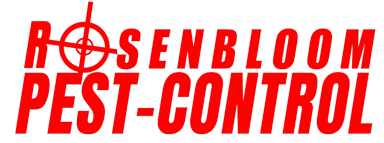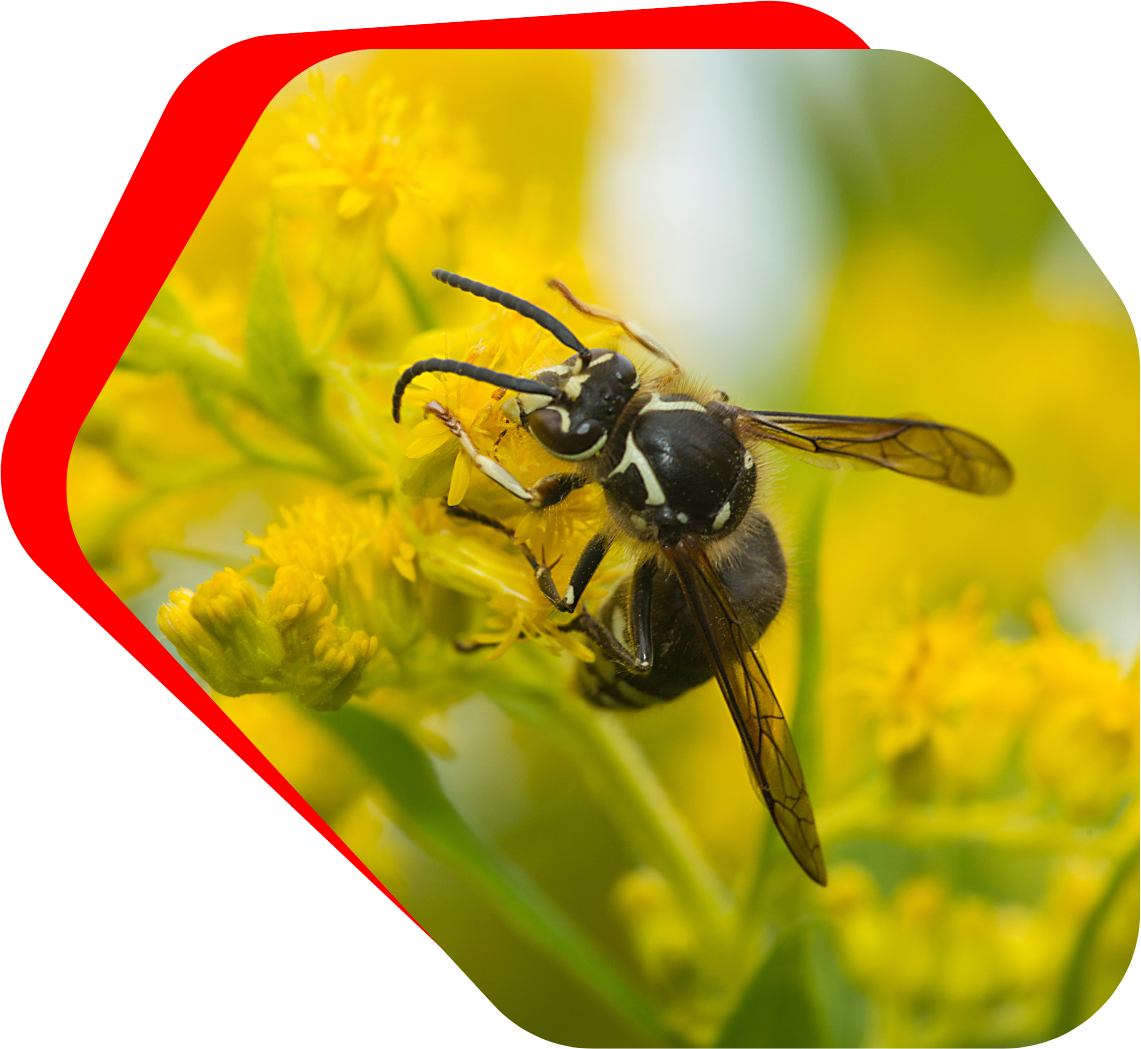Wasps, bees, and hornets, while undoubtedly marvels of nature and pivotal to our environment, can pose significant threats to our homes, businesses, and outdoor areas. As a leading pest control company, Rosenbloom Pest Control understands the challenges our community faces with these stinging pests.
Some common to our area:
- Wasps: The Paper Wasp, Yellowjacket, and Bald-faced Hornet (which is actually a type of wasp) are commonly found in the Baltimore area. They’re identified by their slender bodies and are usually black, brown, or red with yellow markings.
- Bees: Bumblebees, Carpenter, and Sweat are among the non-honeybee types found here. Unlike honeybees, these either don't produce honey, or produce it in very minute amounts. Carpenters, for instance, can be a menace as they bore holes into wood, potentially damaging structures. While bees typically sting only once, many wasps can sting multiple times. Bumblebees are essential pollinators but don’t produce honey like their honeybee counterparts.
- Hornets: The European Hornet is the main species we encounter in Baltimore. They can be aggressive when disturbed and are known for their painful stings. Hornets build large paper-like nests which can house thousands of members.
In the age of the internet, DIY solutions to combat these stingers have become popular. Some believe that a mixture of soap and water can effectively kill wasps and bees. While this can sometimes work, it often requires direct contact and can anger the colony, leading to potential stings. Peppermint is often touted as a natural repellant, it has to be applied frequently and may not deter all species. Vinegar traps may catch a few pests, but they hardly make a dent in a sizable colony. While smoke can deter bees and wasps, it’s a temporary solution and can be a fire hazard. Sealing a nest without professional guidance can trap pests inside, pushing them into living areas. These solutions, while well-intentioned, often lack the efficacy and lasting impact of professional intervention. They can even exacerbate the problem or put untrained individuals at risk.
Dealing with stinging insects isn’t just about eradicating them. It’s about understanding their habits, life cycle, and behavior. At Rosenbloom Pest Control, we bring our expertise and years of experience to the table. Our methods are proven, safe, and environmentally responsible. Whether you're looking to prevent a future infestation or need to tackle a current one, we offer tailored solutions to ensure your space is free from these unwelcome guests. If you’re facing a problem with stinging insects, don’t rely on temporary or risky DIY fixes. Trust the experts at Rosenbloom Pest Control. We have the knowledge, tools, and passion to ensure your space is secure and serene. Reach out to us today for a consultation and let's restore peace to your home or business.
Frequently Asked Stinging Insect Questions
Q1: Why do they seem more aggressive at certain times of the year?
A1: The aggression levels of wasps and bees can vary depending on the season. For instance, in late summer and early fall, wasp colonies reach their peak size. During this period, their typical food sources start to decline, which makes them more likely to invade human spaces in search of sustenance. Consequently, this increased interaction with humans can lead to them appearing more aggressive. Bees, especially when they feel their queen or hive is threatened, can also become more aggressive. It’s essential to be cautious and observant during these peak times.
Q2: I’ve noticed a clear liquid around areas where they hang out. What is it?
A2: This liquid is often called "honeydew." It's not the honey we consume, but rather a sweet substance produced by certain pests like aphids. As these pests feed on plant sap, they excrete honeydew, which attracts wasps and bees. It's essentially a free buffet for them. While honeydew itself isn't harmful, its presence can indicate an underlying pest issue and increase the attraction of stinging insects to that area.
Q3: Are there specific plants or flowers I should avoid to deter these stinging pests from my garden?
A3: While they are attracted to many flowering plants due to their role as pollinators, there are certain plants that seem especially attractive. For wasps, these might include sweet fennel, yarrow, and queen Anne’s lace. Bees are particularly drawn to plants like lavender, borage, and marjoram. If you're looking to deter these insects, consider reducing the number of these plants in your garden. Alternatively, plant species like wormwood, eucalyptus, and citronella, which are known to repel some stinging insects. However, it's essential to remember that bees play a crucial role in pollination, so try to strike a balance that respects both our ecosystem and personal comfort.

